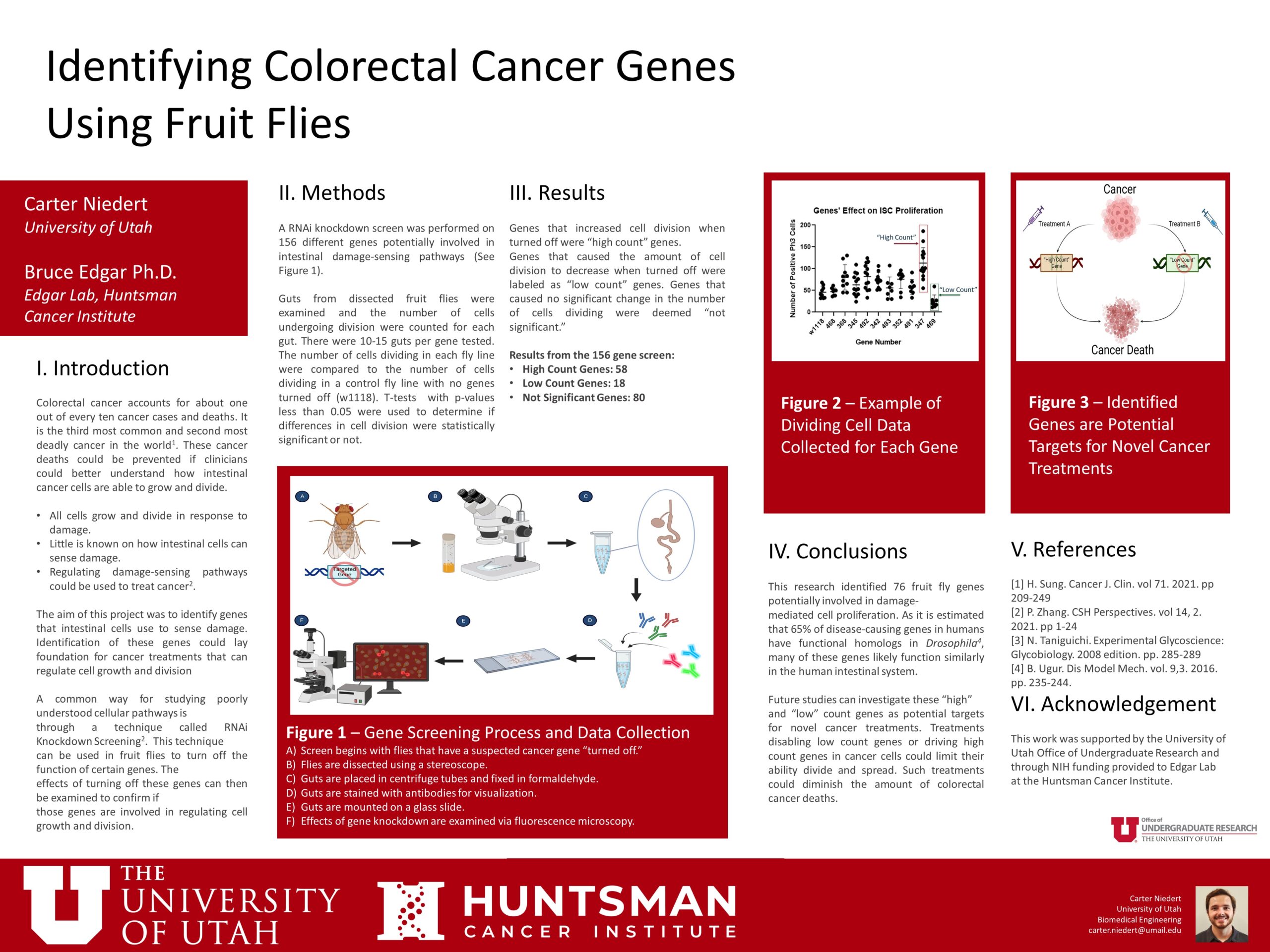Presenter Name: Carter Niedert
Description
Colorectal cancer is the third most common cancer in the United States and the second leading cause of cancer related deaths. Cancer deaths occur due to the disruption of normal physiological processes caused by rapid and uncontrolled cell proliferation. Cell proliferation in cells is often triggered through cellular damage sensing pathways. A better understanding of these pathways could lead to cancer treatments that dampen these pathways and control cell proliferation. Cell proliferation occurs rapidly in the gut due to constant exposure to stressors from the external environment. Cells in the gut can sense damage caused by these stressors and trigger renewal of gut epithelial tissues via intestinal stem cell (ISC) proliferation. ISC Proliferation is generally thought to be regulated by the release of specific cytokines from neighboring cells. Some specific genes involved in the release of cytokines that cause ISC proliferation, such as gene p38, have only been recently discovered. There are many genes involved in damage sensing pathways in the intestines that remain unidentified. The aim of this project was to identify which genes in the gut are responsible for sensing damage and activating cell proliferation. This was accomplished by performing RNAi gene knockdown on Drosophila melanogaster, stressing the midgut via bacterial infection by Pseudomonas entomophila (P.e.) to increase cell proliferation, then dissecting and removing the midgut to analyze the effect gene knockdown had on cell proliferation. Of the 192 genes screened, knockdown of 59 genes led to increased cell proliferation and knockdown of 19 other genes led to decreased cell proliferation. Further studies targeting these genes of interest could lead to a deeper understanding of damage-sensing signaling pathways and to novel cancer treatments that can target specific genes.
University / Institution: University of Utah
Type: Poster
Format: In Person
Presentation #A74
SESSION A (9:00-10:30AM)
Area of Research: Health & Medicine
Email: u1076997@umail.utah.edu
Faculty Mentor: Bruce Edgar

